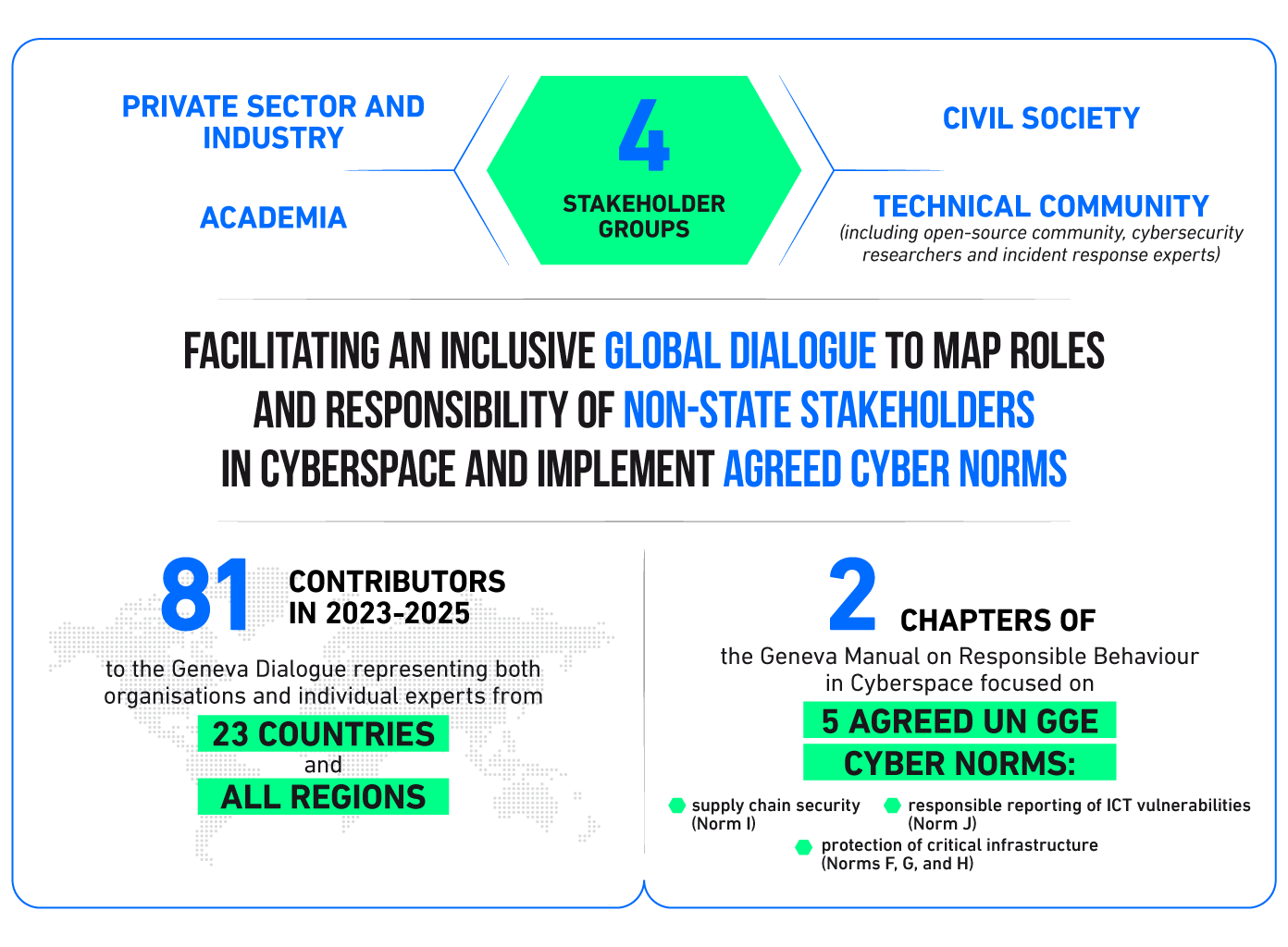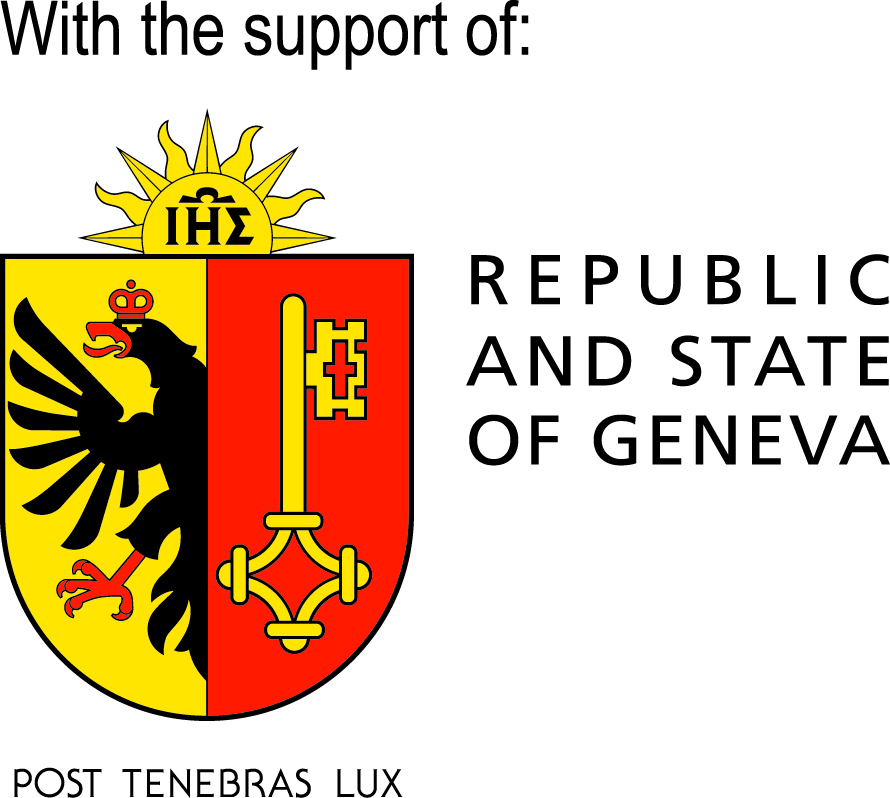-
The Geneva Dialogue endeavours to:
Facilitate an inclusive global dialogue on the roles and responsibilities in cyberspace

Key Challenge
Systemic Vulnerabilities in Security Risks in Cyberspace
As an international process, the Geneva Dialogue builds a multistakeholder community to address risks to security and stability in cyberspace.

Goals
Focusing on Roles and Responsibilities of Non-State Stakeholders
The Geneva Dialogue maps the roles and responsibilities of non-state stakeholders, i.e. the private sector, civil society, academia, and technical community, in contributing to security and stability in cyberspace.

Value
Global Dialogue to Advance Cyber Norms Implementation
The Geneva Dialogue facilitates inclusive global dialogue that promotes responsible behaviour in cyberspace and advances the implementation of existing cyber norms and confidence-building measures (CBMs).
Explore the Geneva Dialogue and its work with the assistant below
About the Geneva Dialogue
Established in 2018, the Geneva Dialogue on Responsible Behaviour in Cyberspace is led by the Swiss Federal Department of Foreign Affairs (FDFA), and implemented by DiploFoundation with support of the Republic and State of Geneva, C4DT and UBS.

-
March 2026
New round focusing on ‘stress-testing’ cybersecurity and cyber norms
Examining cybersecurity and cyber norms under rising geopolitical and systemic pressure
-
May 2025
Launch of the Geneva Manual on Responsible Behaviour in Cyberspace, Chapter 2
Focus on three agreed norms as well as confidence-building measures (CBMs) related to critical infrastructure protection
-
January 2024
New round focusing on Critical Infrastructure Protection
An examination of existing cyber norms and confidence-building measures (CBMs) that related to the protection of critical infrastructure
-
December 2023
Launch of the Geneva Manual on Responsible Behaviour in Cyberspace, Chapter 1
Focus on two existing norms related to ICT supply chain security and responsible reporting of ICT vulnerabilities in the first chapter of the Geneva Manual
-
April 2023
New round focusing on Responsible Vulnerability Disclosure and Supply Chain Security
A structured multistakeholder discussion of the roles and responsibilities of key non-state stakeholders in the practical implementation of cyber norms, especially those addressing ICT vulnerability reduction and supply chain security
-
-
2020
Launch of the Phase 2
Focus on the roles and responsibilities of the business sector





